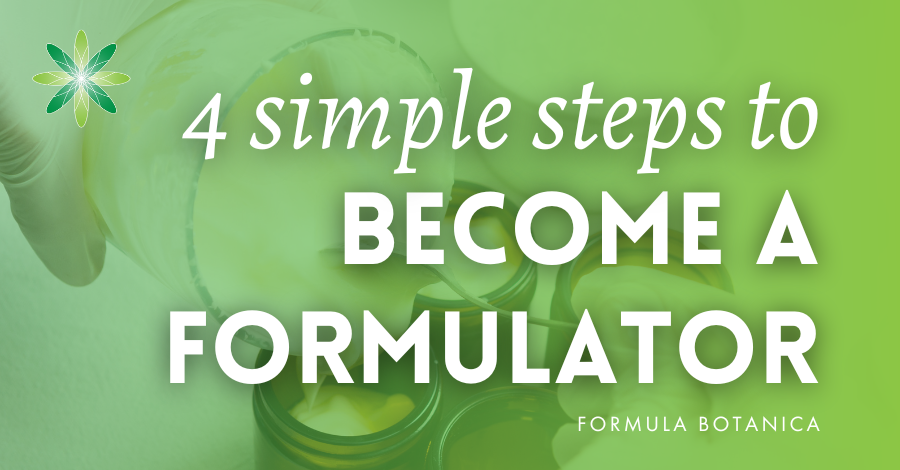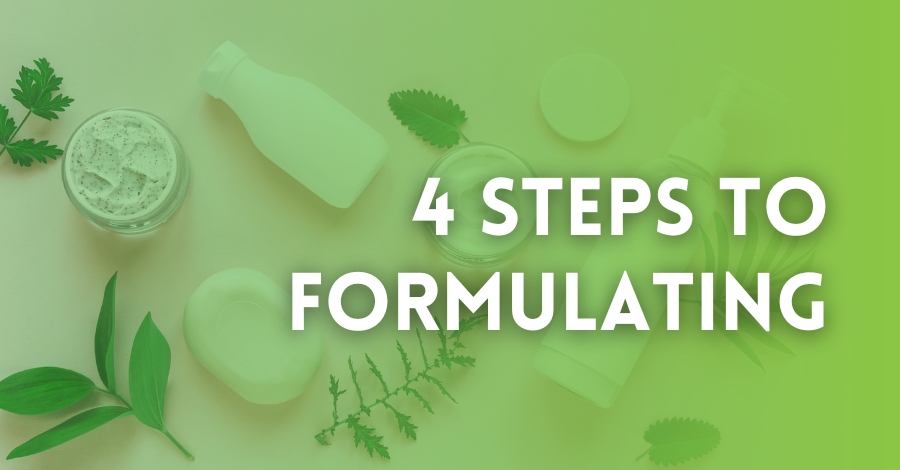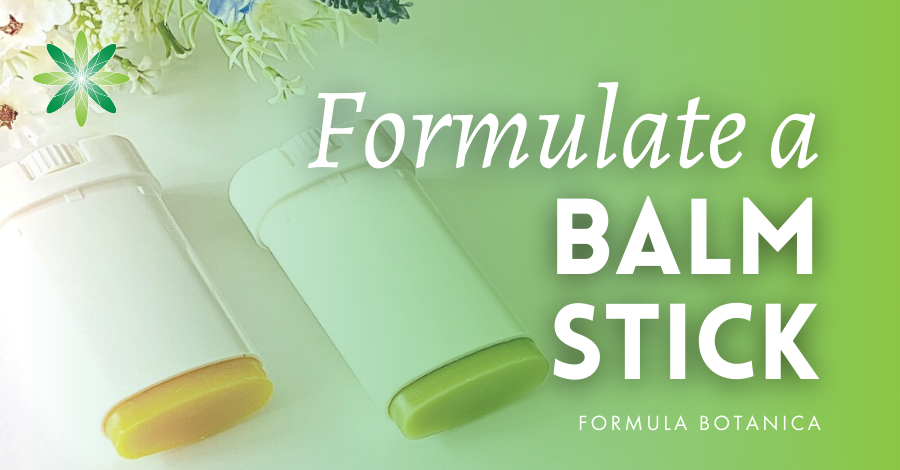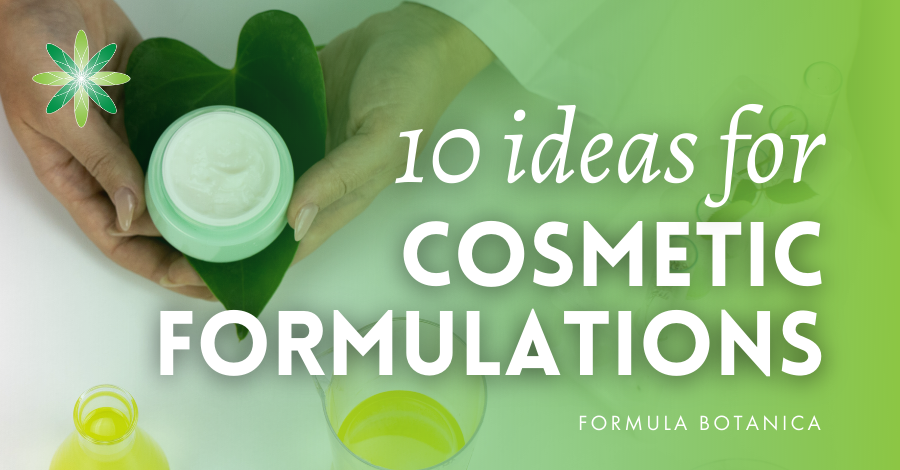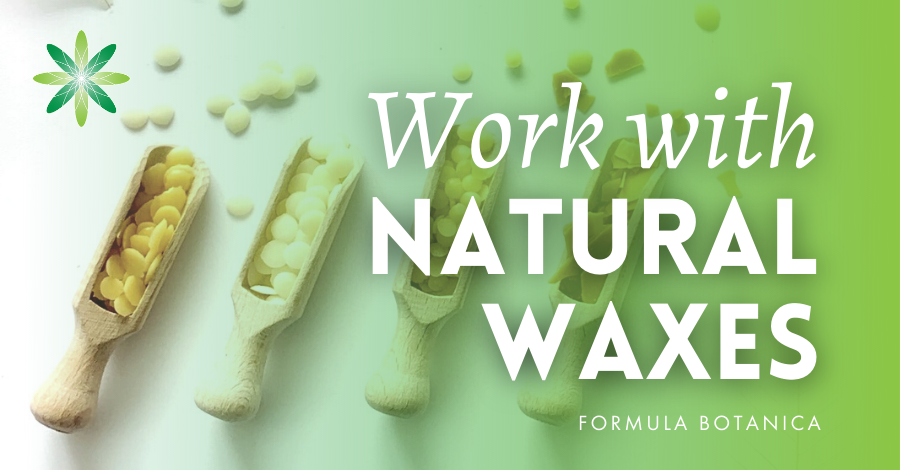You may already have already made a cosmetic recipe you found on the internet, but have you felt what it’s like to really make your own unique formulation yet?
Imagine being able to create your own bath and body line infused with your own choice of gorgeous oils, fragrances and therapeutic ingredients? That’s exactly what our graduate Sandra Velasquez did when she founded Nopalera, a bath and body brand that celebrates her Latino heritage and Mexican botanicals. Sandra launched Nopalera at the start of the pandemic and is now appearing on the investor TV series Shark Tank.
By taking those first steps to learn to formulate, like Sandra did, you will be investing in yourself and channeling your creativity into – even making a career of – formulation. At Formula Botanica, we speak from experience when we say that “everyone can formulate”.
Once you surround yourself by botanicals, you’ll feel excited by the colours and textures and you’ll suddenly see how different organic formulations are to mainstream beauty. Say to yourself this year: “I choose change; I choose happiness; I choose formulation”.
Now is the time to make that commitment to yourself to become a formulator or even a beauty entrepreneur, and we’re here to tell you that botanical formulation is totally within your reach.
The cosmetic formulator vs. recipe follower
First, let’s explain the formulator vs follower distinction. Once you are no longer simply following a cosmetic recipe verbatim that you have found on the internet, you can be a cosmetic formulator. This starts on day one of your studies on a Formula Botanica formulation course.
The light bulb moment comes once you make your first, very own cosmetic formulation using ingredients you have selected and understand. Even making the simplest face serum with five botanical oils qualifies you as a formulator if you have done the research and understand why you have chosen your oils and have formulated in a methodical, planned and prepared way. By swapping one ingredient for another and adjusting the percentages of those five face oils to suit your formulation idea, you are making decisions with the mindset of a formulator.
When you formulate, even common ingredients take on new dimensions. You will enjoy researching and decoding their potential as skin-beneficial ingredients and deciding which types of cosmetic products they best suit.
Of course, there is a learning curve as you build layer by layer on your knowledge and expertise. Let’s now take you on your route to cosmetic formulator.
4 simple steps to learn to formulate
Day one gets you started as a formulator. Then, you then build on your knowledge by learning about topics such as essential oil dermal limits, cosmetics’ preservation, different formulation techniques (for example, warm blending, gelling, emulsification, solubilisation, making foaming products and so on), researching ingredients, and how to test pH. All these skills and more develop you into a competent, versatile cosmetic formulator.
We like to talk about the four key, yet simple stages you progress through in our foundation Diploma in Organic Skincare Formulation.
Stage 1: Creating anhydrous formulations
Focusing on oils, balms, butters, salves and oil-only serums (but excluding oleogels), this stage gets you comfortable with the concept of formulation. These formulations are fun to make, can offer you the satisfaction of creating competent formulations of immediate practical use – and as ideal gifts – and, as no water is involved, you do not need to worry about preservatives at this stage. If you include essential oils to enhance your products’ skin benefits and add a more sensorial feel, you need to research and calculate any essential oil dermal limits.
Stage 2: Preservation, pH and thickeners
Now, we build another layer of your core formulating knowledge by introducing water into your formulations. With water comes preservation, the understanding and testing of pH and learning about other foundation ingredients such as gums as thickeners. You get to make your first toners, start working with hydrosols and make gels. This requires you to start tackling some of the more complex parts of formulation, but introduced in relatively simple products.
Stage 3: Solid formulations and surfactants
This is where you get to grips with surfactants – surface-active agents that create foaming and cleansing actions as well as having emulsifying and solubilising properties. You learn to use them in solid bar forms, which are trending as waterless products, to create shower, shampoo, conditioner and lotion bars.
Stage 4: putting it all together
This is the stage where your skills and knowledge of all the earlier layering stages come together to formulate the more advanced cosmetics in your foundation course. This is an exciting juncture as you work with emulsifiers, solubilisers and surfactants to make emulsions and foaming products, both of which have the potential for high-performance additives and a lovely sensory feel on the skin. We know how empowered you are going to feel once you are confidently making aqueous (water-based) formulations.
Once you master emulsification, you can start making your own organic body lotions. Imagine infusing lots of gorgeous botanical ingredients into your formulation to moisturise your skin, as well as using your lotion as a massage ritual to enjoy the well-being and moments of calm it offers.
Shaping the formulator in you
Above, we have given you the shorthand version of everything we cover in the Formula Botanica Diploma in Organic Skincare Formulation – our foundation course. You are a formulator from stage one and will start thinking and acting as one from the very first formulation that you adjust from a framework recipe. By stage four, you are a far more experienced and accomplished formulator.
Don’t forget that the moment you are no longer simply recipe following, you are a cosmetic formulator. Start now by acccessing our free formulation training today. Pre-enrol and take that first step to becoming a formulator and changing your life.
FREE TRAINING
Learn how to become an
Organic Skincare Formulator
FREE TRAINING
How to become an
Organic Skincare Entrepreneur
FREE TRAINING
How to become an
Organic Skincare Entrepreneur
Leave us a comment
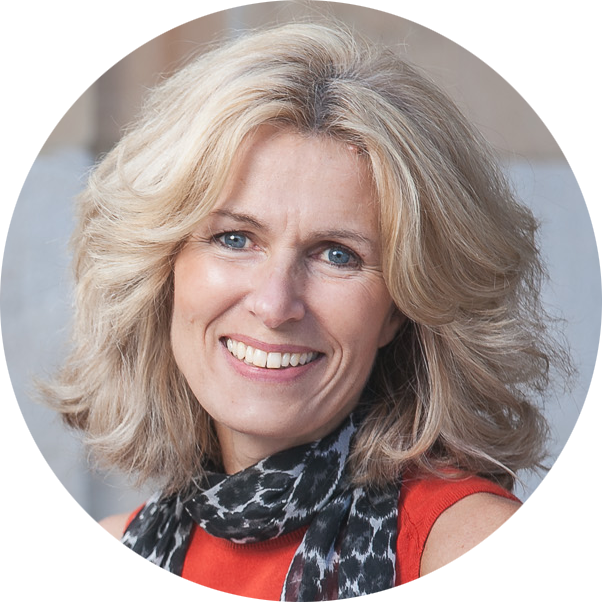
Liz was Formula Botanica’s Content Coordinator between August 2020-2024. Liz worked as a professional blogger, journalist and site developer for many years and was also part of the Formula Botanica student community. Read more about the Formula Botanica Team.

